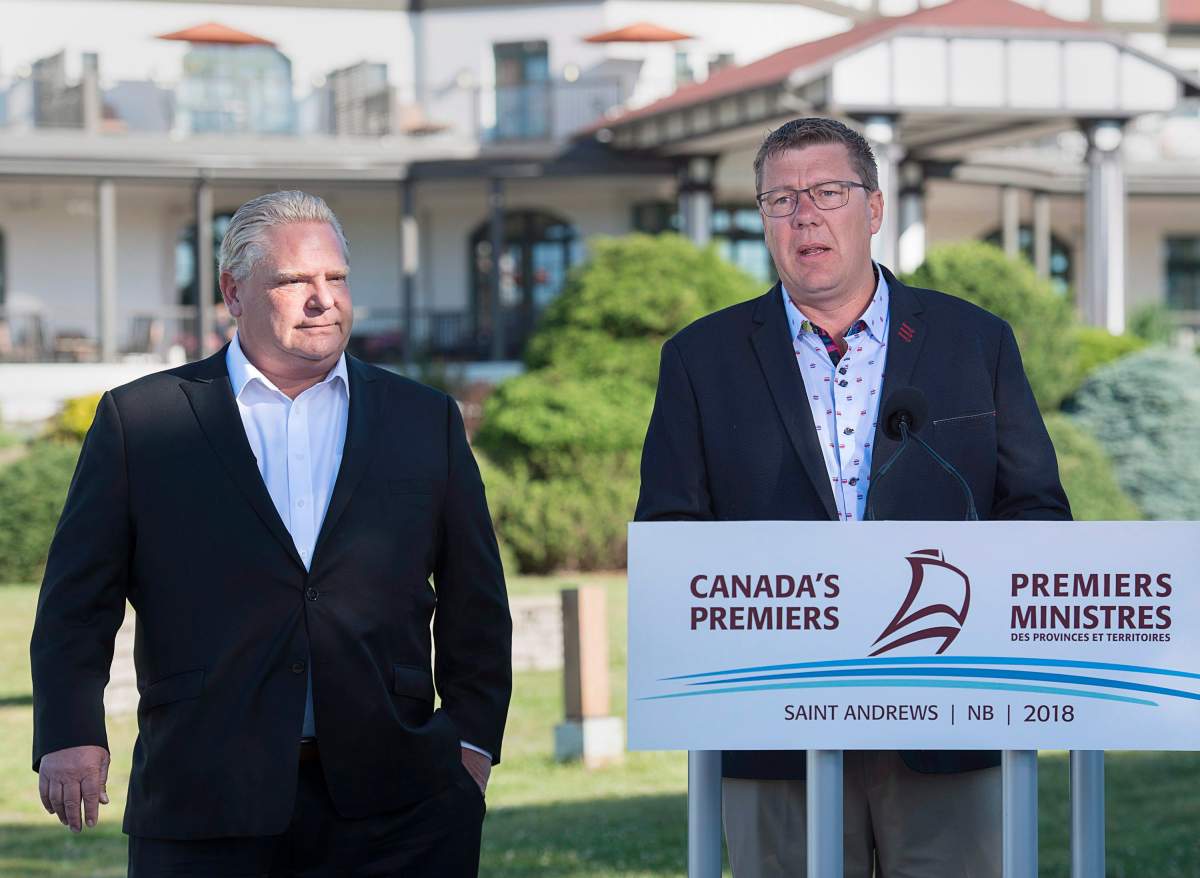A recent poll conducted by the Angus Reid Institute claims two in three (64 per cent) Canadians say provinces should choose their own method on how to reduce carbon emissions.

The results are much to the delight of Saskatchewan Premier Scott Moe and Ontario Premier Doug Ford, who continue to fight the federal government’s commitment to impose carbon pricing.
Federal carbon pricing is set to be put in place next January for provinces that do not have a sufficient plan already, which has to be deemed adequate in the eyes of the Trudeau government.

Get breaking National news
When it comes to the specific decisions made by the two leaders, the numbers are slightly higher.
Seven in ten (72 per cent) Canadians, including close to 88 per cent of those in Saskatchewan, agree with Moe’s decision to challenge Trudeau’s carbon pricing plan in court.
In contrast to those results, 51 per cent of Canadians, including 55 per cent of Ontarians, agree with Ford’s recent decision to put an end to Ontario’s cap and trade program.
Other key findings in the poll see 45 per cent of Canadians supporting the federal carbon tax, which compares to 44 per cent in 2016.
56 per cent of Canadians believe global warming is real, and mostly caused through industrial activity by humans.
20 per cent say it’s caused by natural processes, the rest are split between uncertainty at 11 per cent and outright disagreement at 14 per cent.
The deadline for provinces to submit carbon pricing proposals is Sept. 1, 2018.
British Columbia, Alberta, Manitoba and Quebec have already submitted their proposals, while the four Atlantic provinces intend to do so before the deadline.







Comments
Want to discuss? Please read our Commenting Policy first.